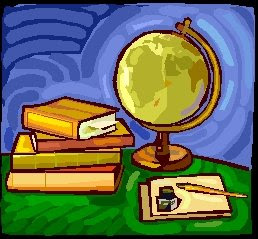Googling: Limit yourself to about 15 minutes of unsuccessful Googling before giving up the hunt. Try the library or a database, or consider altering your topic/thesis. The Internet simply doesn't have everything.
Scholarly sites: Your research source must be academically up to par, reliable, and reputable. Often, this will mean an "edu" suffix in the web address. Find the author, poster, sponsor, or publisher. Go to the home page. Minimize the http. Look for universities, scholarly institutes, PhD's, etc. In film, look for film institutes or critics who discuss the literary value of films.
Commercial sites: These are not scholarly. They are for making money. They generally represent the consensus of opinion on a topic and offer nothing new or special. Some teachers will bar these sites from serious research assignments: Sparknotes, enotes, Bookrags, etc. Beware of sites with a lot of ads or with information for purchase -- this excludes subscriptions to scholarly journals of course.
Unreliable sites: blogs, forums, consumer reviews, anything written by Joe Public, or Wikipedia - which is just a public domain encyclopedia.
Databases: Go through your school or library. Nearly everything you find there will be of acceptable quality.
Documentation: Don't forget the web address and date of access. Some sites, including databases, will provide doc form for you. Use an MLA guide.
Wednesday, March 25, 2009
Monday, March 23, 2009
Hero Research Paper!! -- Phase One

Topic: Select a hero (protagonist, in a hero cycle) from a story (not real life) who reveals something about humanity, culture, and/or worldview. Also, since this is essentially a literary topic -- we are studying stories -- you can expect to use literary terms in your discussion, for instance theme, symbolism, antagonist, character development, archetype, etc.
Sources: This being a literary topic, your sources will be literary critics. This week, we will learn where critical sources can be found in the SCS library, online, and in electronic databases. We will learn how to select valid sources and eliminate poor sources. You will find at least 2 sources on your selected topic by the end of the week.
Sources: This being a literary topic, your sources will be literary critics. This week, we will learn where critical sources can be found in the SCS library, online, and in electronic databases. We will learn how to select valid sources and eliminate poor sources. You will find at least 2 sources on your selected topic by the end of the week.
Due: Friday 3/27 -- Phase One Thesis Worksheet
Tuesday, March 17, 2009
Book Clubs, 3rd Quarter
Your book club should be finishing up its "club choice" reading selection. For your meeting, please discuss the following items:
1) Purpose, genre and audience of the book -- did it satisfy?
2) Literary merit... look at your popcorn books if necessary, and discuss at least 6 applicable terms
3) What is the time/cultural/religious context of the book? For instance, The Iliad was Greek @ 800 B.C., polytheistic. What clues led you to this analysis?
4) Did you like the book? Why/why not? Give the book a rating out of 5 stars.
Please pick up book club cover sheets from the "paper table." Due for Book Club Forum in class March 31, the last day of the quarter.
1) Purpose, genre and audience of the book -- did it satisfy?
2) Literary merit... look at your popcorn books if necessary, and discuss at least 6 applicable terms
3) What is the time/cultural/religious context of the book? For instance, The Iliad was Greek @ 800 B.C., polytheistic. What clues led you to this analysis?
4) Did you like the book? Why/why not? Give the book a rating out of 5 stars.
Please pick up book club cover sheets from the "paper table." Due for Book Club Forum in class March 31, the last day of the quarter.
Wednesday, March 11, 2009
Middle Ages Lit Test
Here is what the text will comprise:
1) history context (time line)
2) geography context
3) King Arthur legend
4) Christ figures in lit
5) Koran and Islam
6) 1001 Nights
Test date: Tuesday, St. Patrick's Day
Test will include:
lower level details from history and stories read
middle level lit term application/analysis
higher level questions of worldview significance
1) history context (time line)
2) geography context
3) King Arthur legend
4) Christ figures in lit
5) Koran and Islam
6) 1001 Nights
Test date: Tuesday, St. Patrick's Day
Test will include:
lower level details from history and stories read
middle level lit term application/analysis
higher level questions of worldview significance
Subscribe to:
Comments (Atom)
